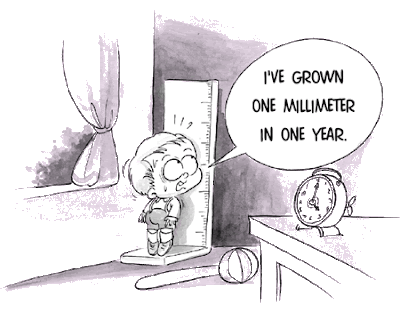THE PRESENT PERFECT TENSE
Form
The present perfect tense is formed with the present tense of the auxiliary verb to have (have/has)+ the past participle: I have worked.
SPELLING/ PRONUNCIATION
The past participle in regular verbs has exactly the same form and pronunciation as the simple past, i.e. loved, walked etc.
In irregular verbs, the past participles vary and have different forms in the third column.
The negative is formed by adding not to the auxiliary have/has.
The interrogative is formed by inverting the auxiliary and subject.
Affirmative Negative Interrogative
I have worked I have not worked Have I worked?
THE USES OF THE PRESENT PERFECT TENSE
This tense may be said to be a sort of mixture of present and past. It always implies a strong connexion with the present and is chiefly used in conversations, letters, newspapers and television and radio reports.
USE 1 Unspecified Time Before Now
We use the Present Perfect to say that an action happened at an unspecified time before now. The exact time is not important. You CANNOT use the Present Perfect with specific time expressions such as: yesterday, one year ago, last week, when I was a child, when I lived in Japan, at that moment, that day, one day, etc. We CAN use the Present Perfect with unspecific expressions such as: ever, never, once, many times, several times, before, so far, already, yet, etc.
Examples:
· I have seen that movie twenty times.
· I think I have met him once before.
· There have been many earthquakes in California.
· People have traveled to the Moon.
How Do You Actually Use the Present Perfect?
The concept of "unspecified time" can be very confusing to English learners. It is best to associate Present Perfect with the following topics:
TOPIC 1 Experience
You can use the Present Perfect to describe your experience. It is like saying, "I have the experience of..." You can also use this tense to say that you have never had a certain experience. The Present Perfect is NOT used to describe a specific event.
Examples:
· I have been to France. This sentence means that you have had the experience of being in France. Maybe you have been there once, or several times.
TOPIC 2 Change Over Time
We often use the Present Perfect to talk about change that has happened over a period of time.
Examples:
· You have grown since the last time I saw you.
TOPIC 3 Accomplishments
We often use the Present Perfect to list the accomplishments of individuals and humanity. You cannot mention a specific time.
Examples:
· Man has walked on the Moon.
· Our son has learned how to read.
· Doctors have cured many deadly diseases.
· Scientists have split the atom.
TOPIC 4 An Uncompleted Action You Are Expecting
We often use the Present Perfect to say that an action which we expected has not happened. Using the Present Perfect suggests that we are still waiting for the action to happen.
Examples:
· James has not finished his homework yet.
· Susan hasn't mastered Japanese, but she can communicate.
TOPIC 5 Multiple Actions at Different Times
We also use the Present Perfect to talk about several different actions which have occurred in the past at different times. Present Perfect suggests the process is not complete and more actions are possible.
Examples:
· The army has attacked that city five times.
· I have had four quizzes and five tests so far this semester.
Time Expressions with Present Perfect
When we use the Present Perfect it means that something has happened at some point in our lives before now. Remember, the exact time the action happened is not important.
Sometimes, we want to limit the time we are looking in for an experience. We can do this with expressions such as: in the last week, in the last year, this week, this month, so far, up to now, etc.
Examples:
· Have you been to Mexico in the last year?
· I have seen that movie six times in the last month.
NOTICE
"Last year" and "in the last year" are very different in meaning. "Last year" means the year before now, and it is considered a specific time which requires Simple Past. "In the last year" means from 365 days ago until now. It is not considered a specific time, so it requires Present Perfect.
Examples:
· I went to Mexico last year. I went to Mexico in the calendar year before this one.
· I have been to Mexico in the last year. I have been to Mexico at least once at some point between 365 days ago and now.
USE 2 Duration From the Past Until Now (Non-Continuous Verbs) With Non-Continuous Verbs and non-continuous uses of Mixed Verbs, we use the Present Perfect to show that something started in the past and has continued up until now. "For five minutes," "for two weeks," and "since Tuesday" are all durations which can be used with the Present Perfect.
Examples:
· I have had a cold for two weeks.
· She has been in England for six months.
Although the above use of Present Perfect is normally limited to Non-Continuous Verbs and non-continuous uses of Mixed Verbs, the words "live," "work," "teach," and "study" are sometimes used in this way even though they are NOT Non-Continuous Verbs.
USE 3 AN INCOMPLETE PERIOD MAY BE INDICATED BY TODAY OR THIS MORNING/AFTERNOON/EVENING/WEEK/ MONTH/YEAR/CENTURY
Note that the present perfect can be used with this morning only up to about one o'clock, because after that this morning becomes a completed period and actions occurring in it must be put into the simple past:
(at 11 a.m.) Tom has rung up three times this morning already.
(at 2 p.m.) Tom rang up three times this morning. Similarly, this afternoon will end at about five o'clock:
(at 4 p.m.) I haven't seen Tom this afternoon.
(at 6 p.m.) I didn't see Tom this afternoon.
· Further examples of the use of the present perfect and simple past
A TOM (visiting Philip for the first time): / didn't know you lived in a houseboat.
PHILIP: I've always lived in a houseboat. I was born in one.
I thought you were still on holiday. When did you get back? ~ I come back last week.
Has your term started yet? ~ Yes, it started on Monday.
B Note that a conversation about a past action often begins with a question and answer in the present perfect, but normally continues in the simple past, even when no time is given. This is because the action first mentioned has now become definite in the minds of the speakers: Where have you been? ~ I've been to the cinema. ~ What did you see?/What was the film? ~ (I saw) 'Amadeus'. -Did you like it?
HUSBAND: Where have you been?
WIFE: I've been at the sales.
HUSBAND: What have you bought?/What did you buy?
WIFE: / have bought/I bought you some yellow pyjamas.
HUSBAND: Why did you buy yellow? I hate yellow.
C The present perfect is often used in newspapers and broadcasts to introduce an action which will then be described in the simple past tense. The time of the action is very often given in the second sentence:
Thirty thousand pounds' worth of jewellery has been stolen from Jonathan Wild and Company, the jewellers. The thieves broke into the flat above some time during Sunday night and entered the shop by cutting a hole in the ceiling.
But even if the time of the action is not given the past tense will normally be used in the second sentence:
Two prisoners have escaped from Dartmoor. They used a ladder which had been left behind by some workmen, climbed a twenty-foot wall and got away in a stolen car.
D The present perfect is often used in letters:
/ am sorry I haven't written before but I 've been very busy lately as Tom has been away.
We have carefully considered the report which you sent us on 26 April, and have decided to take the following action.
ADVERB PLACEMENT
The examples below show the placement for grammar adverbs such as: always, only, never, ever, still, just, etc.
Examples:
· You have only seen that movie one time.
· Have you only seen that movie one time?
· The present perfect used with just for a recently completed action
He has just gone out = He went out a few minutes ago. This is a special use of this tense, just must be placed between the auxiliary and the main verb. This combination is used chiefly in the affirmative, though the interrogative form is possible:
Has he just gone out? It is not normally used in the negative.
· lately, recently used with the present perfect also indicate an incomplete period of time.
In the sentences Has he been here lately/recently? and He hasn 't been here lately/recently, lately/recently means 'at any time during the last week/month etc.'; and in He has been here recently,
recently means 'at some undefined time during the last week/month etc.'
lately is less usual with the affirmative, except for actions covering periods of time:
There have been some changes lately/recently.
He's had a lot of bad luck lately/recently.
recently, used with a simple past tense, means 'a short time ago':
He left recently = He left a short time ago.
ACTIVE / PASSIVE: HAVE/HAS + BEEN + PAST PARTICIPLE
Examples:
· Many tourists have visited that castle. Active
· That castle has been visited by many tourists. Passive
More:
Exercises:

































0 коментара:
Постави коментар